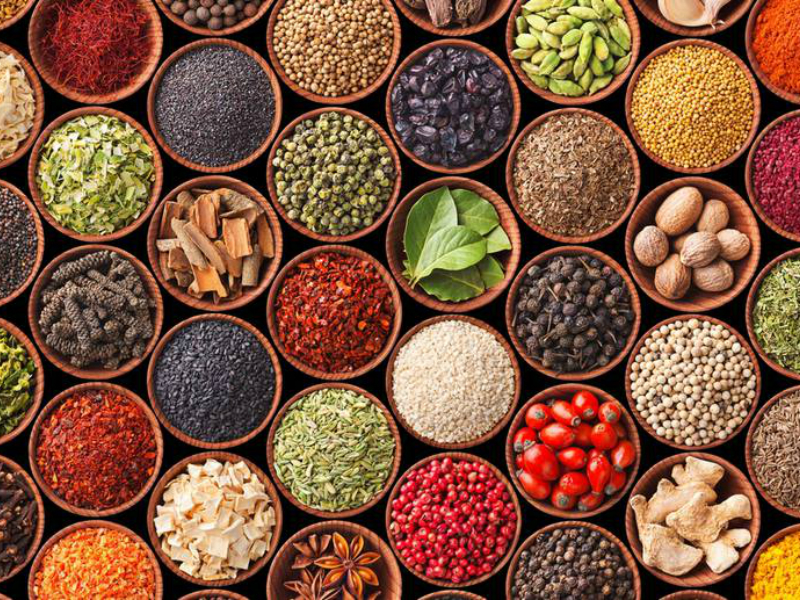Winter is almost behind us and spring will soon be settling in. The change in temperature brings a whole new set of herbs to the plate, but that doesn’t mean it’s too late to curl up inside with hearty warm flavours. Herbs have long been known to add flavour to food, but also have a long history of healing and soothing the body through times where the body might not be able to handle things on its own, especially in this shift from cold season to allergy season. That’s why cooking with some of these herb staples through this transition might be just the boost you’re looking for.
Garlic
Let’s start with a fan favourite. This salty, spicy, and sometimes nutty flavour is found in foods including soups, stir frys, chicken, meats, pizza, and so much more. Amazingly, garlic goes all the way back to biblical times, where the slaves in Egypt lamented that they wouldn’t be receiving any more garlic after becoming free. Outside of the story of Exodus, it is rumoured to have been given to Egyptian slaves to help with their strength. Historically, garlic has been used for its antiseptic properties, and it has continuously been labeled as an antioxidant, which means that it can boost the immune system by helping to rid the body of toxic cells. As garlic is such a common flavour, it’s easy to add to foods year-round and reap the benefits.
Turmeric
A warm, earthy, sweet tasting spice, commonly found in orange cheese, mustard, curry, stirfry, and more. Lately it’s even been added to a variety of foods including smoothies and lattes. In the last few years, turmeric has risen in popularity due to the research backing its potent antioxidant properties. In fact, research articles have pegged curcumin, the main ingredient in turmeric, as being antibacterial, antiviral, antifungal, and a main player in helping with many other health conditions. All of this is to say that turmeric is a very strong choice for immune support in multiple ways.
Ginger
Generations of moms have been giving their kids ginger ale for stomach bugs, and now there’s research to back up all of those caring mothers. Numerous high quality studies have looked at the potency of ginger on stomach ailments and more. More recently, ginger is being added to every day foods, like smoothies, and tea. While ginger remains the best choice and the go-to- for digestion issues, it also has strong anti-inflammatory components, making it an ideal choice for a transition into allergy season. Ginger is a unique flavour, being hot and sweet, while also tangy and savoury all at the same time. Its versatile flavour has been used in candy, and cookies, but also in stir fry and as seasoning for meals.
Parsley
Definitely a spring herb, this one is famous for its spotlight on the Seder table and representing the spring season. A perfectly fresh spring flavour, it’s commonly used as a garnish, a spice, and a marinade. Parsley has been found to contain high amounts of vitamin C, which many will recognize as being important during cold and flu season in fighting off bugs. That being said, it’s not usually consumed in large doses or as a healing herb. It is important to note, however, that the amount of parsley consumed as a garnish or seasoning will not give a full daily dose of the nutrients found within it, and it is recommended that you speak to your doctor about any vitamin or mineral supplements.
Cold season is hard enough on the body, but when extreme temperatures are followed by the start of allergy season, these conditions can wreak havoc on the immune system. While it’s never a bad idea to choose herbs with healthy properties for an immune boost, consuming these herbs in your diet likely will not cure a cold, or rid you of 100 per cent of your allergies. While some people may take larger doses of foods targeted at boosting immunity or decreasing inflammation, it’s always recommended to talk to your health care provider first.
